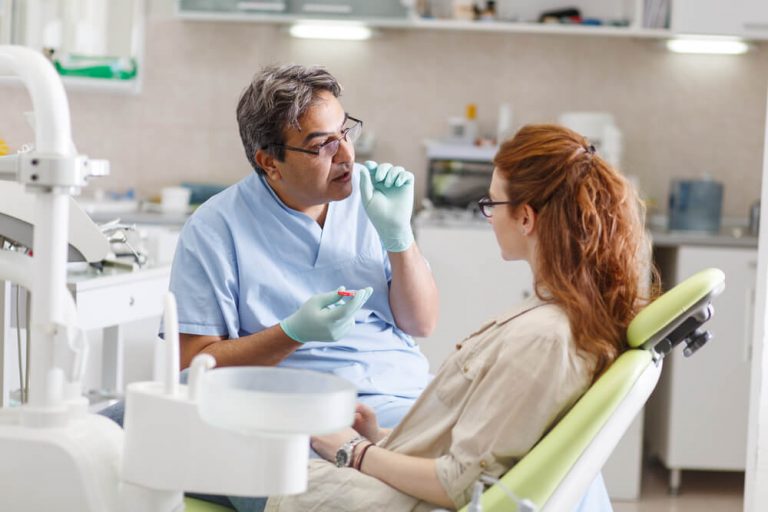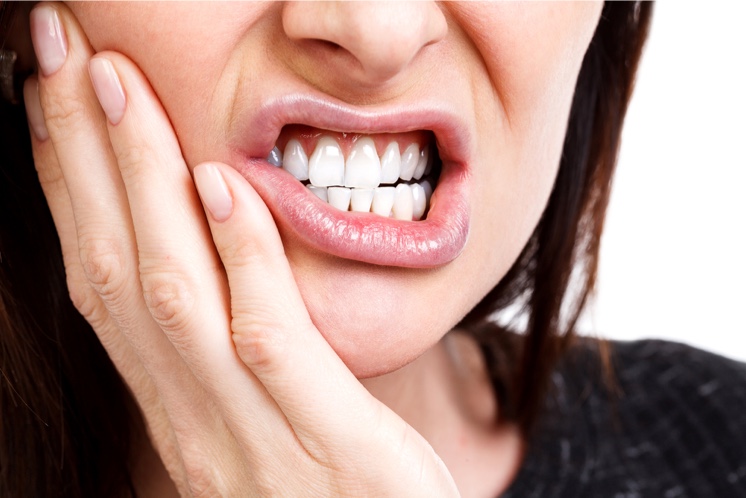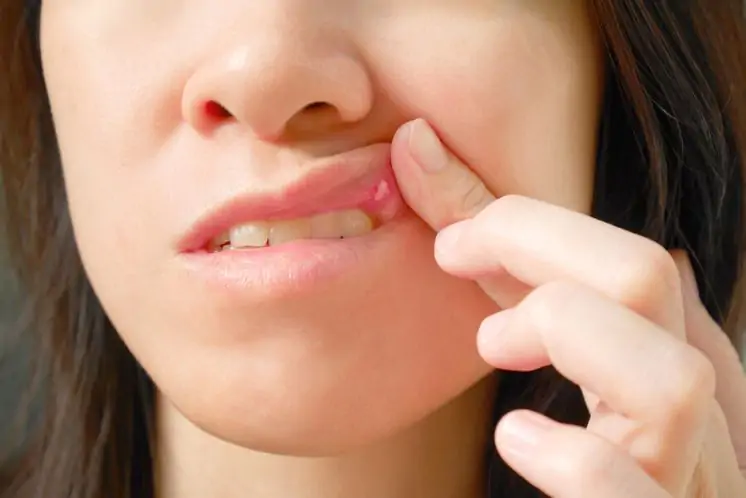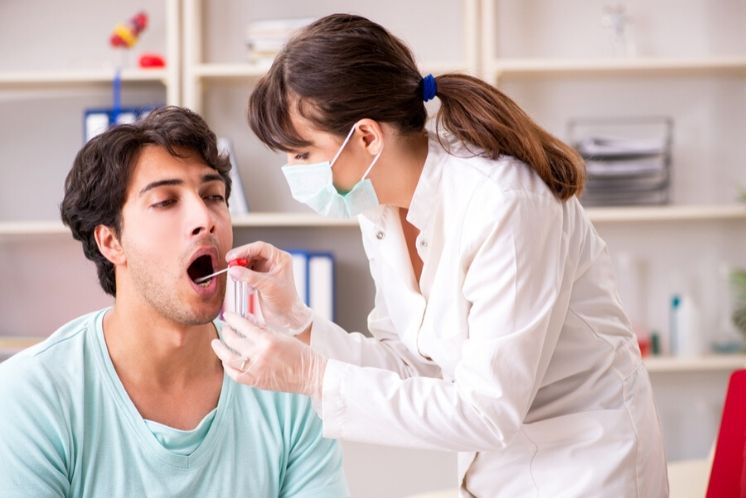Inflamed palate: causes, symptoms and treatment

The palate is the roof of the mouth, which separates the oral cavity from the nasal cavity. It consists of a hard frontal area, made of bone, and a soft back area that does not have skeletal support, and ends in a fleshy extended projection called the uvula.
Why is my palate swollen? Main causes
Now and again, the palate may become inflamed, which may be due to various potential causes, most of which are rectified with minimal treatments. In less common cases, the inflammation may be due to a more serious complaint.
Other symptoms that may accompany the inflammation of the palate may be the presence of blisters or ulcers, dry mouth or discomfort.
The most common conditions that may cause an inflamed palate are mouth ulcers such as aphthae or those caused by cold sores. Also, an injury or trauma caused by any hard or very hot foods can cause an inflamed palate.
Dehydration can cause a dry mouth which, if adequate measures are not taken to revert it, could lead to an inflamed palate.
Treatment for an inflamed palate
In most cases, an inflamed palate can be treated at home or you can wait for it to cure by itself. Common injuries caused by a burn or a trauma will generally heal in a few days.
Ulcers or aphthae generally disappear by themselves, although medication may also be used to help reduce the seriousness or frequency.
In the event of dehydration or electrolyte imbalances, increase liquid intake avoiding alcoholic drinks.
Although most cases of an inflamed palate do not require the involvement of a professional, it is recommendable to consult your GP or dentist if you have any pain that does not disappear with medication, if the inflammation lasts more than a week without any apparent cause, or if the inflammation is accompanied by other symptoms.
In most cases, an inflamed palate should not be a cause for concern, since normally the patient recovers in full in a few days.
Uvula in the palate, what are its functions?
At the back of the palate, known as the soft part, we can find the uvula. It is a small muscle that hangs off our palate, located among the tonsils.
Formed by mucosa and connective tissue, it has three basic functions for our organism:
- It allows us to articulate sounds in a coordinated manner with our throat to be able to talk.
- It protects us against bacteria, since it acts as a barrier so that the micro-organisms do not reach our digestive system.
- When we vomit, this muscle, together with other parts of the soft palate, prevent liquid and foods from reaching the nasal cavity.
Inflamed uvula
Just like light cases of an inflamed palate, these symptoms in the uvula can also be treated at home.
An inflamed uvula will prevent food and drink from being swallowed normally or, on attempting to talk, different discomfort or difficulty will be noticed.
If this pain or discomfort is intense or persistent or, if off-white marks or any type of ulcers are observed, you should always visit a professional to assess the corresponding case.
Some of the most common causes of the inflammation of this muscle are a dry mouth or an infection. Smoking, alcohol, very hot drinks… can be counter-productive in the curation process and must be removed from our diet.
Some of the tips to take care of our inflamed uvula include:
- Avoid the consumption of alcoholic drinks.
- Avoid the consumption of very cold or very hot drinks.
- Take particular care of our throat and avoid brusque changes of temperature.
- Avoid smoking.
- Keep your palate moist by drinking lots of water.
- As far as possible, keep your neck warm.
- You should avoid shouting or raising your voice until the inflammation passes.








